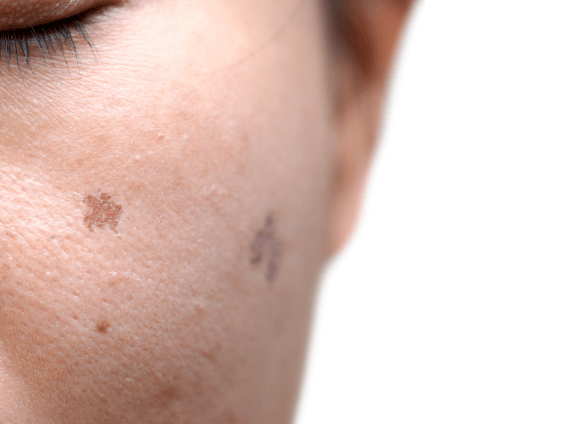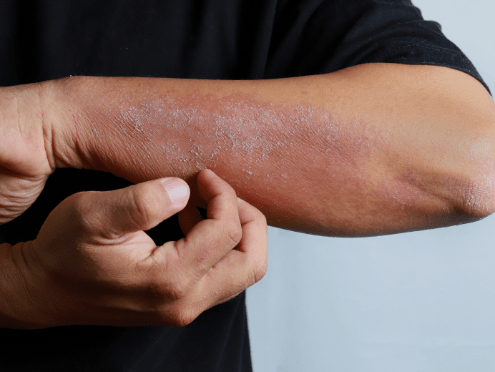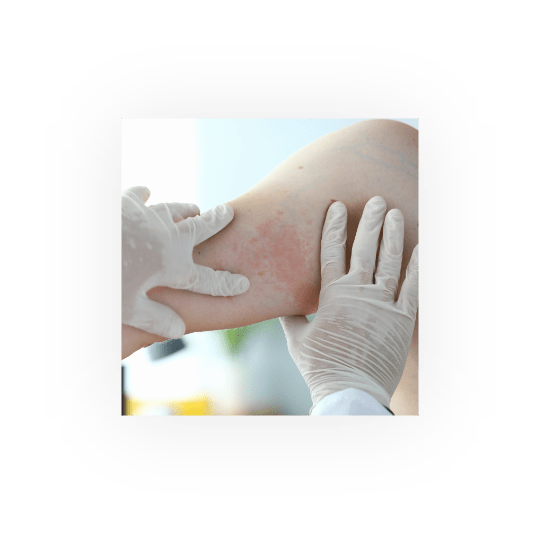
Is it skin cancer?
Skin blemishes, moles, discolouration and patches may be cause for concern, particularly when they appear suddenly, become enlarged or change colour. Don’t leave it to chance. Early detection is key to successfully treating skin cancers.
There are four signs to look out for: spread of pigment from the border of the spot into surrounding skin, a change in sensation (itchiness, pain, tenderness), change in the surface (lumpiness, scaliness, oozing or bleeding) and sores that won’t heal. The best way to find out whether a lesion or blemish on your skin is in fact cancerous is to have your skin checked regularly by a professional.
Psoriasis and eczema
In addition to bringing pain and discomfort, psoriasis and eczema can disrupt sleep and lead to poor quality of life due to dry, itchy and flaky skin.
Psoriasis is an immune condition characterised by silvery white or red areas of skin. It is very common, affecting more than 1 million Australians and has both internal and external triggers.
Eczema is also very common and presents as a red, itchy rash particularly in skin folds of the face and body. In many patients it manifests as atopic dermatitis and is associated with allergic eye reactions, hay fever, asthma and food intolerances. Both eczema and psoriasis can be treated using UVB phototherapy at our clinics.


Melanoma
This is the least common, but most serious and dangerous form of skin cancer. It grows much faster than other types and is more likely to spread.
Basal Cell Carcinoma (BCC)
This is the most common type of non-melanoma skin cancer. BCCs grow slowly, and if left untreated, penetrate deep into the skin.
Squamous Cell Carcinoma (SCC)
This is a type of non-melanoma skin cancer that grows quickly and spreads to other parts of the body.
Non-Cancerous Skin Spots
While not cancerous, some have the potential to develop into skin cancers. It is important to monitor these closely.

Healthy skin starts here
Along with the use of sunscreen and moisturisers, your annual skin check is a vital part of the skin care regime needed to keep your skin healthy.
Unlike other cancers, most skin cancers are easily detected and treatable. Regular skin checks and consultation with your skin doctor will give us the best chance at identifying skin cancers early on, and potentially saving you from a deadly cancer.
During your skin check, your doctor will discuss their findings with you and suggest any procedures or treatments you may need, such as a skin biopsy or cryotherapy.
